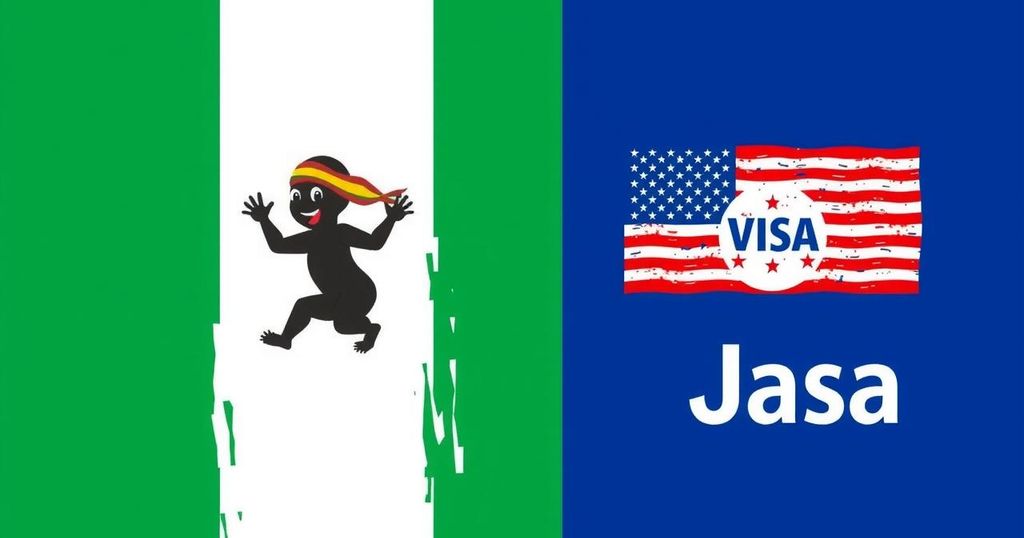The 2023 U.S. Visa Overstay Report reveals Ghana has overtaken Nigeria in visa abuse rates, with Ghanaians showing a 7.50% overstay rate for B1/B2 visas and 21% for student visas. In comparison, Nigerians have a 7.14% rate for B1/B2 and 15.60% for student visas. Overall suspected overstays reached over 510,000, highlighting significant immigration compliance issues. Historical data suggests a pattern of increasing overstay rates.
The 2023 United States Government Report on Visa Overstays reveals that Ghana has surpassed Nigeria in the rates of visa overstay for B1/B2 and F, M, and J non-immigrant visa categories from October 2022 to September 2023. The report, analyzed by MyNewsGh.com, indicates a notable increase in abuse rates among Ghanaians, with 7.50% overstay for B1/B2 visas and an alarming 21% for student and exchange visitor visas, in contrast to Nigeria’s 7.14% and 15.60%, respectively. The total number of suspected in-country overstays in the U.S. reached 510,363 during the fiscal year 2023, constituting 1.31% of expected departures. Meanwhile, 54,792 individuals recorded their departure post-overstay. The report delineates categories of overstays, highlighting individuals who remained without identifiable departures or adjustment of status, which emphasizes the importance of data interpretation by U.S. Customs and Border Protection. In the context of historical data, Ghanaians previously maintained a lower overstay rate compared to Nigerians prior to the pandemic, with established trends showing rising figures in recent years. The report further compares rates from various African nations, highlighting Mali at 5.27% and Burkina Faso at 12.13%, thus providing a broader perspective on visa management and immigration compliance across the continent.
The topic under discussion focuses on visa overstay statistics released by the United States Government for the fiscal year 2023. This data is crucial for understanding immigration trends and the compliance of visa-holding individuals from various countries, particularly Ghana and Nigeria, as they navigate U.S. immigration regulations. The insights from this report indicate a shift in the landscape of visa compliance, with Ghana now leading in overstay rates, and provide context for analyzing habitual visa abuse among these populations. The report also highlights the necessity of accurately tracking visa holders’ status to decrease overstay incidents and ensure adherence to immigration laws. Moreover, the report captures the complexities involved in identifying whether a visa holder has overstayed, as lawful status may be contingent on extensions or changes in immigration status that are not always immediately apparent. This can complicate the determination of overstay rates and necessitates refined data analysis methodologies.
In conclusion, the 2023 visa overstay report indicates a troubling trend for Ghana, as it now surpasses Nigeria in terms of visa abuse rates for certain non-immigrant visa categories. The findings emphasize the need for continued scrutiny of visa compliance among foreign nationals. Additionally, the comparisons with historical data illustrate shifts in immigration patterns and underscore the importance of better tracking mechanisms to manage visa holders effectively. Addressing these issues is essential to maintain the integrity of the U.S. immigration system and mitigate overstay incidents.
Original Source: www.ghanaweb.com







